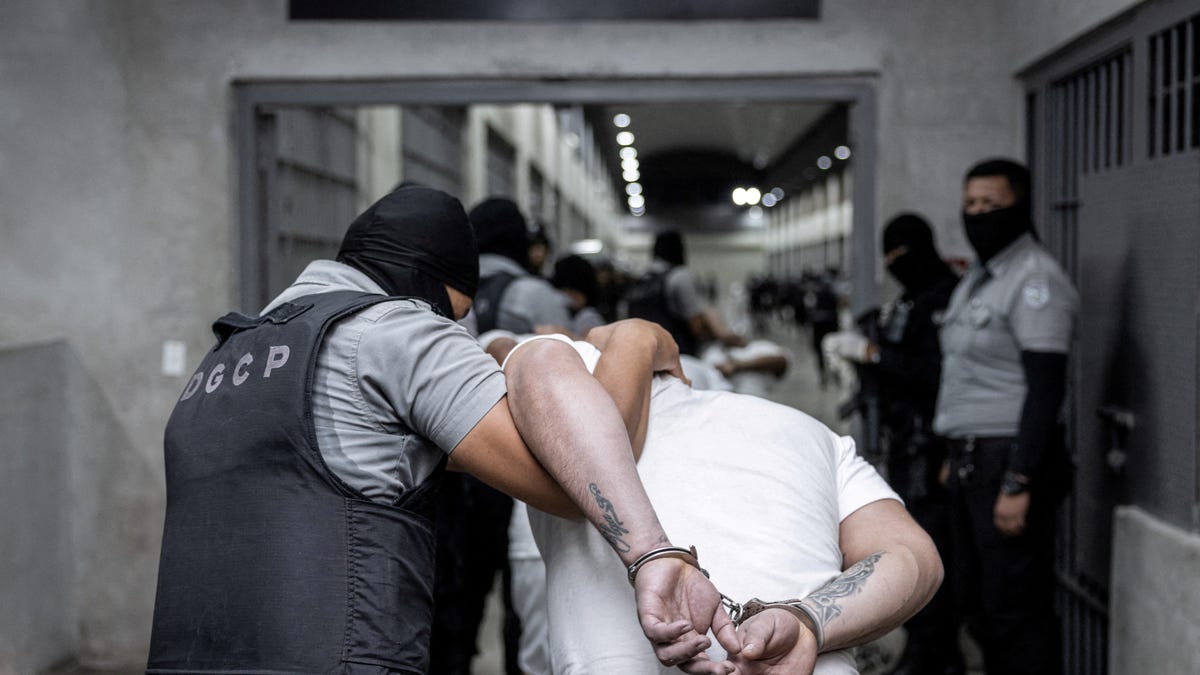What to know about the Alien Enemies Act of 1798
President Trump wants to invoke the Alien Enemies Act of 1798. Here’s what you need to know about the wartime law.
Judge Patricia A. Millett, one of three judges hearing a Trump administration appeal over deportation flights, voiced concern Monday that alleged Nazis were given more rights by the U.S. government during World War II than the Trump administration gave alleged Venezuelan gang members deported on two plane flights March 15.
“There were plane loads of people. There were no procedures in place to notify people. Nazis got better treatment under the Alien (Enemies) Act than has happened here,” Millett, an Obama appointee on the U.S. Court of Appeals for the D.C. Circuit, said. Alleged Nazis, she said, got the chance to go before hearing boards as part of their process.
Millett was one of three appellate judges considering Monday whether to free the Trump administration from a temporary restraining order that has halted its ability to hastily deport alleged members of the Tren de Aragua Venezuelan gang under the 1798 Alien Enemies Act. The other two judges are Trump-appointee Justin R. Walker and George H. W. Bush-appointee Karen LeCraft Henderson.
“We certainly dispute the Nazi analogy,” government lawyer Drew Ensign said in response to Millett. Ensign emphasized that the five plaintiffs in the lawsuit he was addressing were able to get court papers filed in time to be heard pre-deportation.
How did we get here?
Trump invoked the Alien Enemies Act, which authorizes deporting foreign citizens during wartime or foreign invasion, to deport more than 200 alleged gang members through the March 15 flights without the standard hearing process. Since 1798, the law has previously only been used during three wars – most recently, World War II.
Trump has argued that using the law is justified now based on his claim that the Venezuelan gang, Tren de Aragua, has invaded the country.
However, U.S. District Judge James Boasberg temporarily halted the deportations, saying that the law is meant to apply to hostile acts by a foreign nation that are akin to war, not to the Venezuelan gang.
How to know if deportees were actually gang members?
“We don’t have any record on whether these individuals are members of Tren de Aragua or victims of Tren de Aragua,” Millett said of those who have already been deported.
Family members and advocates say immigration authorities are using tattoos of soccer teams, family relatives, crowns, and professions to inaccurately link them to the gang. One deportee was a professional soccer player before fleeing Venezuela after being arrested and tortured for protesting its autocratic regime, according to his lawyer.
Could case be booted based on legal procedure?
Millett wasn’t the only judge to express concern that the deportees deserved a chance to be heard in court.
“You’re not getting an argument from this bench so far today against the idea that every single member of this class can have” a chance to claim innocence before a judge, Walker said.
However, many of Walker’s questions suggested he could be inclined to rule the five plaintiffs should have brought their legal challenge through a procedure that would place them in a Texas court, instead of a D.C. one. Texas is where the five detainees are being held, he emphasized.
Walker also questioned an order from U.S. District Judge James Boasberg – whom Trump has said he wants impeached – for the Trump administration to turn any planes around that were currently in the air.
“I’m wondering if you can point me to a district court (temporary restraining order) or injunction that survived appeal that stopped an ongoing, partially-overseas national security operation in the way that this – at the time, at least – did order planes to take foreigners from international waters to the United States?” Walker asked ACLU lawyer Lee Gelernt, who was arguing on behalf of the detainees.
Gelernt responded that the government shouldn’t be able to argue that national security prevents people from getting a chance to be heard before getting deported.
Contributing: Reuters
